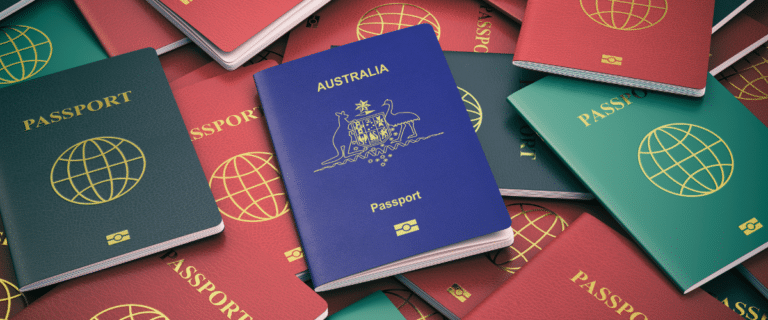On This Page...
ToggleWhy Your Australian Partner Visa Got Refused for Chinese Nationals.
As an immigration lawyer who has seen just about every visa refusal scenario, I know the ins and outs of why partner visas can get knocked back. For Chinese nationals, some unique challenges and misunderstandings often lead to refusals, and I want to give you the lowdown on what to watch out for, how to address common concerns, and where to get support if you’re dealing with this issue. Let’s jump into the most common questions I get asked.
1. Why are partner visa applications from Chinese nationals often refused?
One of the biggest reasons for refusal is a lack of convincing evidence for the relationship. Australia’s Migration Act 1958 requires you to prove your relationship is genuine and ongoing. This is tough for Chinese nationals, as cultural norms might mean less public display of affection or fewer joint financial commitments, which can hurt your case if not presented effectively.
2. What counts as “genuine relationship” evidence?
A range of documents can help, like joint leases, shared bills, and proof of joint travel. If you’re separated due to work or study, communication logs like chat history and emails are crucial. The goal is to demonstrate that you’re committed and actively involved in each other’s lives.
3. Can cultural differences impact the application process?
Absolutely. For instance, in Chinese culture, it’s less common for couples to have joint financial accounts early in the relationship. But, Home Affairs might see this as a lack of commitment. This makes it essential to translate cultural nuances in a way the Department understands.
4. What role does financial evidence play in partner visa approvals?
Financial interdependence is important, as it shows shared responsibility. Shared assets, joint bank accounts, or consistent financial support between partners can strengthen your case. If you don’t have these, get creative with other forms of proof, like shared purchases or future financial plans.
5. Are interviews common in partner visa assessments for Chinese applicants?
Yes, especially if the relationship raises flags. Immigration officers might ask in-depth questions about your partner’s family, lifestyle, or even small details to confirm consistency. It’s worth preparing as a couple so your answers align.
6. What if the visa is refused?
A refusal is disappointing, but it’s not the end. You can apply for a review through the Administrative Review Tribunal (ART). It’s an appeal process where you can present additional evidence. Having a lawyer like me helps, as we know what evidence has weight.
7. What’s the ART process like, and how long does it take?
ART review timelines can vary, often several months to over a year. The ART will re-examine your case with fresh eyes. This is your chance to provide new evidence or explain any points of confusion from the original application.
8. Can previous visa history affect a partner visa application?
Yes, if there’s a history of overstays, breaches, or cancellations, it can signal red flags. You’ll need to explain any issues honestly, as transparency is critical. Positive changes since previous incidents (like returning to China voluntarily) can help.
9. Is there a risk of refusal due to age differences?
Age gaps aren’t necessarily grounds for refusal, but they might raise questions about the relationship’s authenticity. Be prepared to show how your relationship works despite any differences, focusing on shared goals and life plans.
10. Do previous rejections impact future applications?
Yes, prior refusals can affect future applications, especially if the reasons weren’t addressed. If reapplying, aim to resolve the issues flagged, provide extra evidence, and show that your circumstances or understanding of requirements have changed.
11. How can I improve my chances if my application is still in process?
You can submit updated relationship evidence if significant changes occur, like marriage, cohabitation, or a major purchase. Just ensure this evidence aligns with the initial timeline you presented.
12. What is the impact of long-distance relationships on the application?
Long-distance relationships face more scrutiny, especially if physical visits are infrequent. Keeping solid records of communication and regular visits (when possible) helps support your case. A history of previous travel to Australia also adds credibility.
13. What happens if my partner is pregnant, and the visa is refused?
If your partner is expecting, it might strengthen the case, as it shows a deeper commitment. But pregnancy alone won’t secure a visa; you’ll still need to meet all other requirements. If refused, ART appeal is possible, and I’d recommend acting quickly.
14. What documents should be prioritized in a partner visa application for Chinese nationals?
Prioritize providing documents that demonstrate your joint financial, social, and household arrangements, as well as your level of commitment to each other. Including a statutory declaration from family or friends who can vouch for your relationship adds weight.
Closing Thoughts
Navigating a partner visa application can feel overwhelming, especially with the unique challenges Chinese nationals face. I’m here to help guide you through it, ensuring you have everything in order. If you’ve been refused or want a second opinion on your application, don’t hesitate to reach out. Let’s work together to secure your future in Australia.



